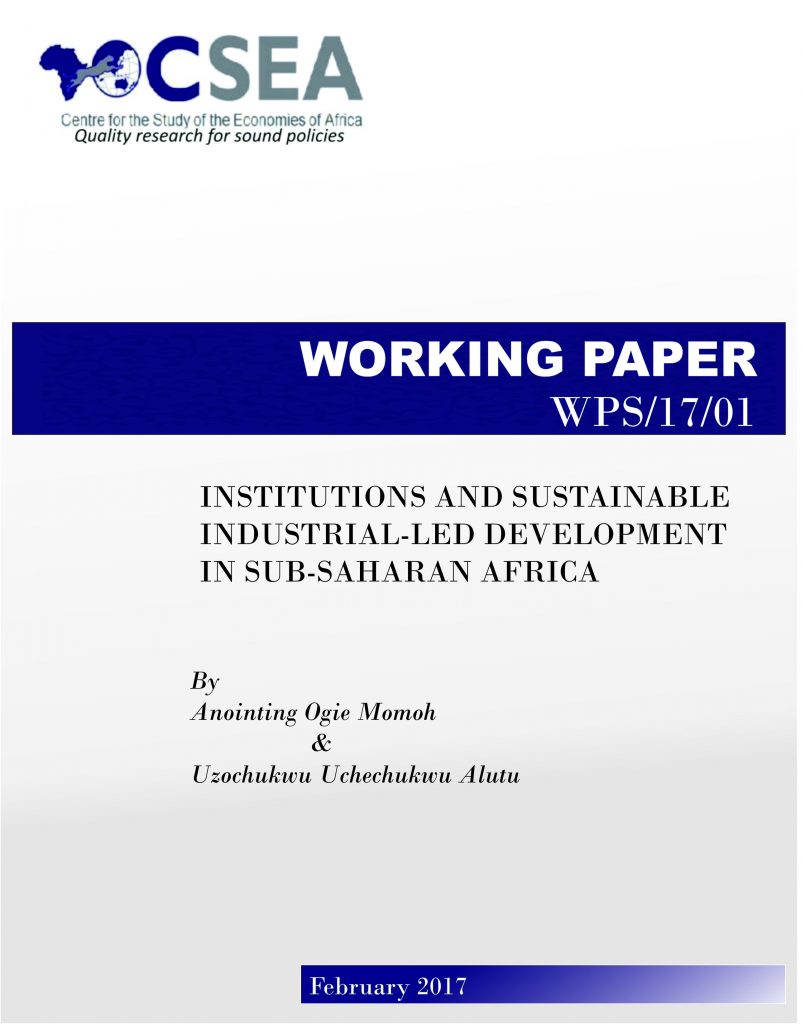Publications

June 26, 2017
Institutions And Sustainable Industrial-led Development In Sub-Saharan Africa
In 2015, economic growth in Sub-Saharan Africa
(SSA) slowed to 3.4 percent from 4.6 percent the previous year. The economic
slowdown in the region was the result of an interplay of several external and
domestic factors such as lower commodity prices, slowdown in the economies of
major trading partners, tightening borrowing conditions, political instability
and conflict, electricity shortages and other infrastructure deficiencies (World Bank, 2016). This sluggish
growth trends is in contrast to the impressive growth recorded in the region,
over the past decade.
Related
Nigeria Economic Update (Issue 25)
Crude oil price continued to increase in the
period under review, reaching its 2016 peak at $50.30 on June 2, 2016.
Specifically, OPEC weekly basket price increased by 1.43 percent from $44.65 on
May 27, 2016 to $45.29 on June 3, 2016. Brent was sold for $49.96
on June 3, 2016. The present rise in crude oil price can be
attributed to oil production shocks in several oil-exporting countries, and the
general expectation of a further cut in output following the OPEC meeting in
Vienna on June 2, 2016. However, the OPEC meeting ended with no agreement on
production quotas. In Nigeria, oil production level increased in the period
under review, following repairs on some of the damaged oil and gas facilities. Precisely,
Nigerias output increased by 200,000 barrels on June 3, 2016 to 1.6 million
barrels.
Nigeria Economic Update (Issue 4)
The Naira/Dollar exchange rate remained
unchanged at ?199/$
in the official market but depreciated from ?263/$ to $267 at the Bureau De Change (BDC)
market segment this week. As the naira depreciates, the CBN forex
restriction measures continue to widen the gap between the official rate and
BDC, which has led to increased calls for naira devaluation. The International Monetary
Fund (IMF) and Business owners are among the major advocates for a relaxation
of the forex restrictions set by the CBN, in order to enhance the level of economic
activities.
